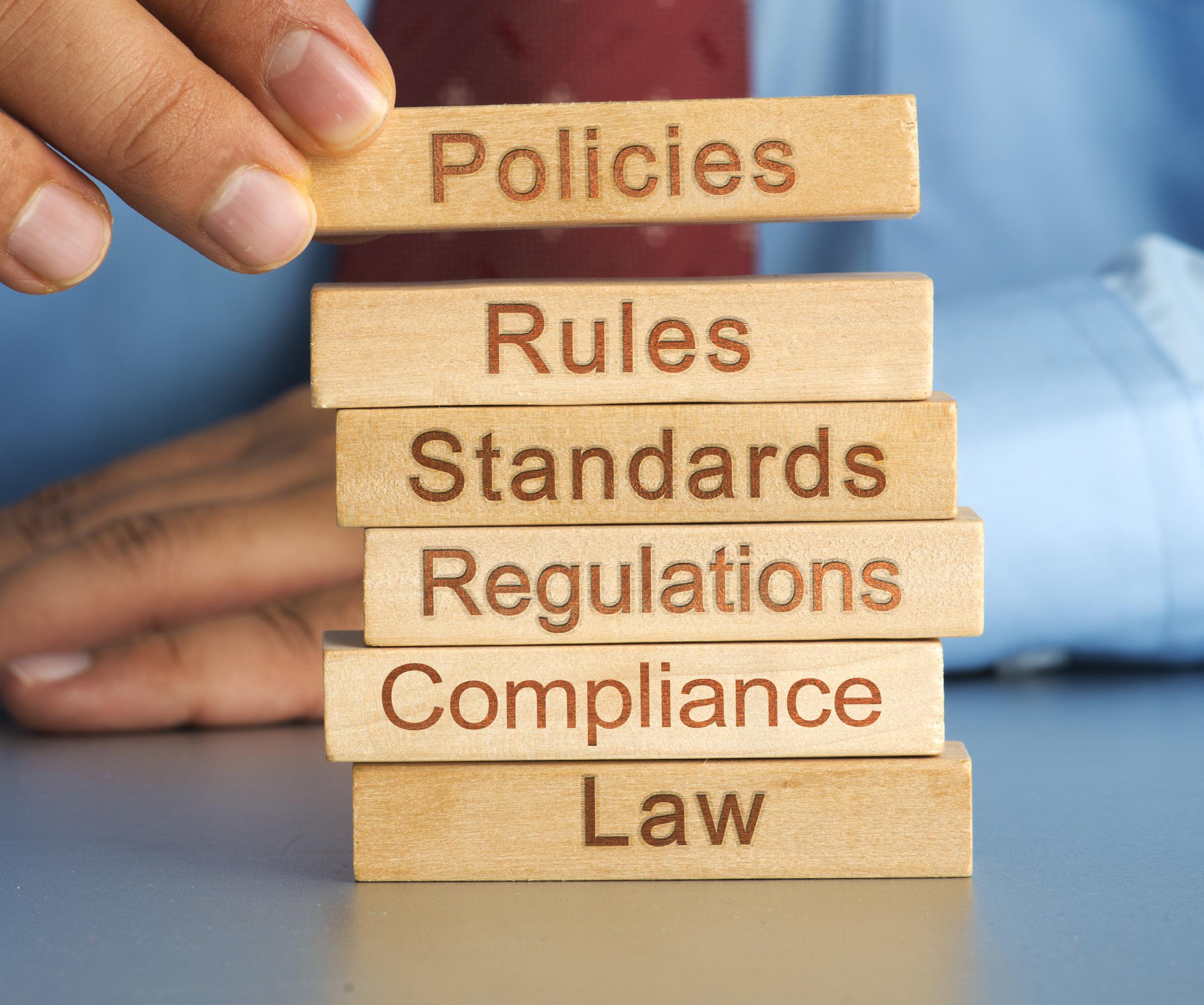
17 minute read
Technical & Regulatory
Dale’s Diary
The past few months have been a hectic period of regulatory activity at both a European and UK level. The CEA’s Senior Technical Consultant, Dale Camsell, was deeply involved in this activity and provides a brief overview of some of the key topics…
Advertisement
Air Quality (1) – London Low Emission Zone
The Greater London Authority (GLA) has reactivated its non-road mobile machinery (NRMM) committee. The committee has not renewed the block exemption on fixed speed engines (e.g. mobile generators). This means that any fixed speed machine, that is not already covered by an exemption approval from the GLA, will now need to be at Stage V rather than the previously allowed Stage IIIA in order to operate in central London. All existing exemptions remain valid.
Air Quality (2) – Aftermarket tampering of engines
Aftermarket tampering includes third-party reflashing (also known as remapping) of the engine control unit. This involves the installation of diesel exhaust fluid (DEF) emulators that trick the control system into thinking that the DEF tank is full, removal of aftertreatment devices, etc. CEA raised the matter with DfT and I'm pleased to report that they are very keen to pursue this matter. After a series of meetings, the objective is likely to be the development of a regulation that will criminalise this type of activity.
Air Quality (3) – UK emissions inventory DEFRA is creating an updated UK-wide emissions inventory. The aim of the research is to establish an understanding of the current UK NRMM fleet in order that its total emission contribution can be estimated. This inventory will form part of the basis of DEFRA’s emissions related policies for the foreseeable future. DEFRA has developed an online questionnaire
Quarrying + Construction + Recycling
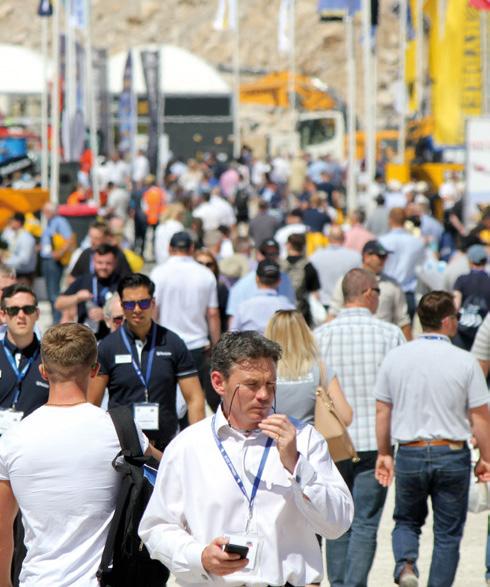
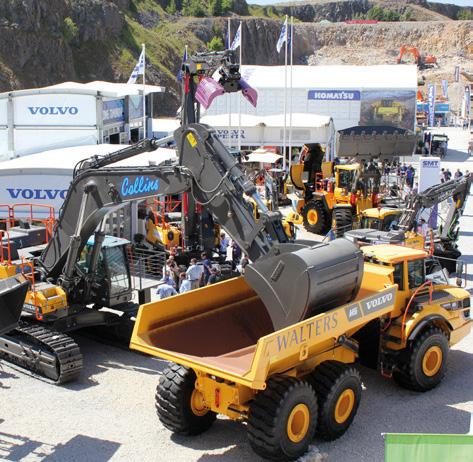



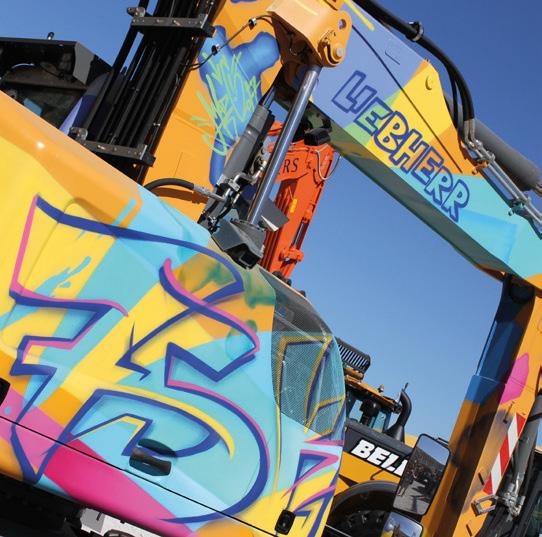
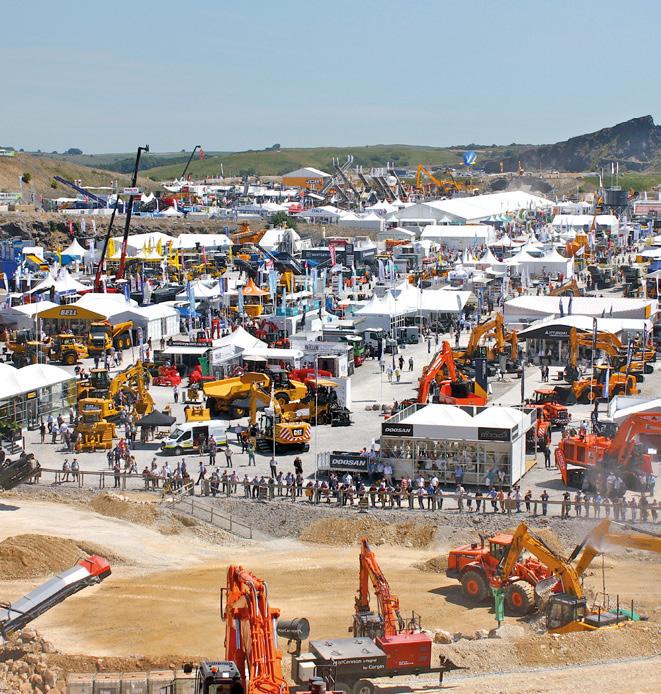
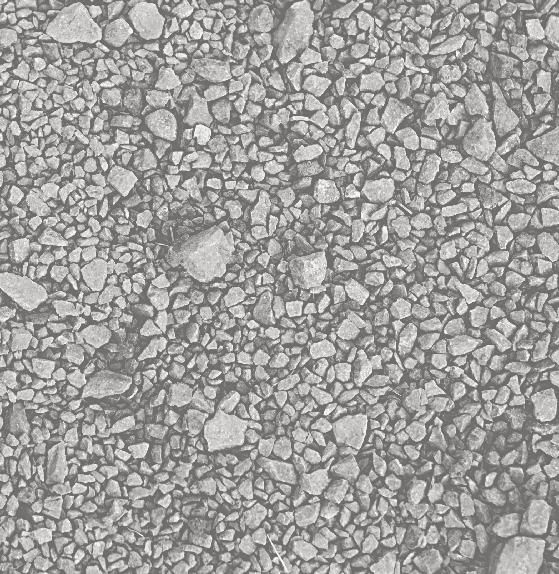

23 – 25 June 2020 Hillhead Quarry | Buxton Derbyshire | UK Live demonstrations 550+ exhibitors Free entry

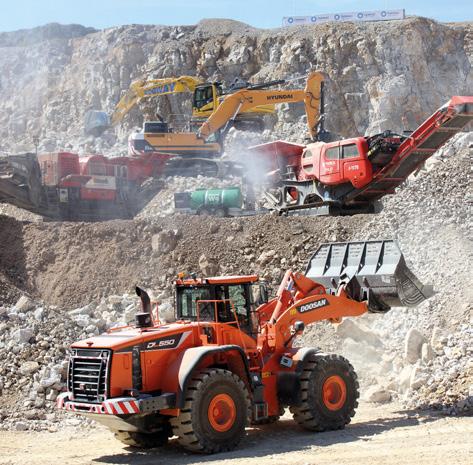
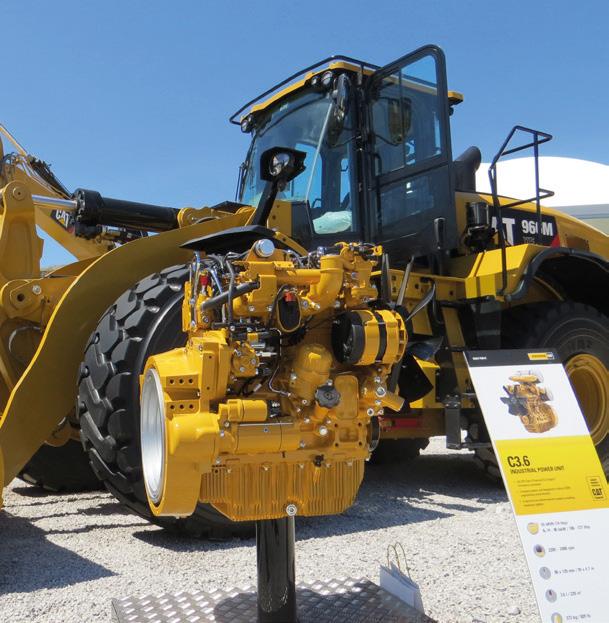

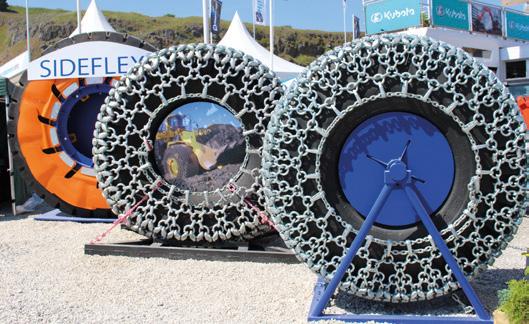
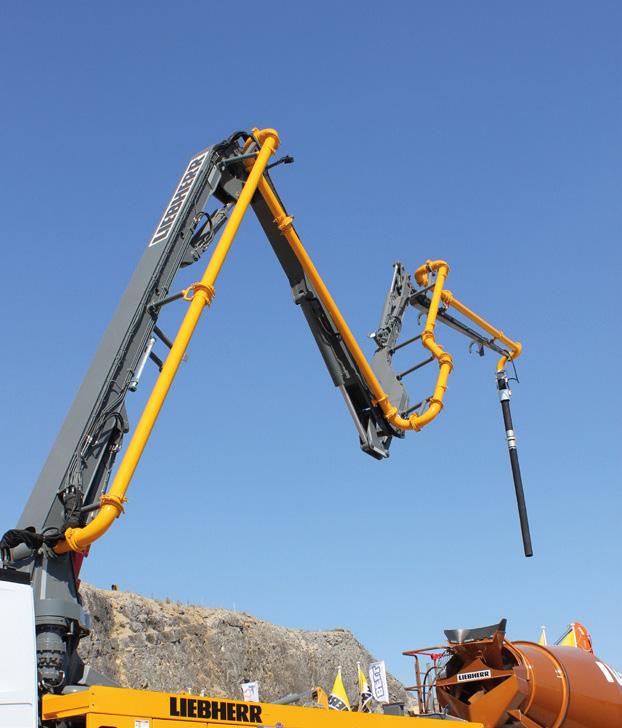
to which CEA members have responded. The data that CEA members contribute will be a significant factor in the development of the inventory.
Next moves: for up to date information on air quality issues, members should sign up to the CEA’s General Technical Committee (GTC) mailings – contact the CEA office for details.
Machinery Directive revision – Differences remain The revision of this core piece of safety legislation progresses via meetings of the European Commission’s Machinery Working Group (MWG). This is the forum where open exchanges take place between the European Commission and stakeholders such as member state representatives, market surveillance authorities, notified bodies and trade associations, including CECE.
The hottest topic of discussion was if/how the revision deals with new technologies such as artificial intelligence (AI), machine learning, software updates, cybersecurity, etc. Some stakeholders are concerned that the current version of the Machinery Directive focuses solely on manufacturers’ responsibilities at the time of placing their products on the market. They are concerned that AI could bring about a change in the function of a machine, hence the safety measures that were installed at the time of manufacture might not be sufficient in the future. The question being asked is “how should this be dealt with?” The majority of member states are firmly of the view that the revised Machinery Directive needs to include measures as to how to deal with new technologies, whereas the majority of industry associations believe that the current legal text is perfectly adequate to deal with these matters.
Next moves: your views on the Machinery Directive revision can be channelled via the CEA/CECE representatives on the MWG. Further information from the CEA office.
The long road - Road Circulation of Machinery At the end of 2019 the European Commission hosted a workshop to discuss the creation of a new regulation that would harmonise the requirements for the circulation of machinery on the public highway. Publication of such a regulation would be very welcome by CEA members since, at present, there is no pan-European regulation covering the road circulation of machinery; at present it is left to member states to decide their own national requirements. The publication of a single, pan-European piece of legislation would harmonise requirements such as braking, steering, visibility, lighting, machine marking, etc. This would reduce manufacturing complexity and allow greater flexibility for machine owners to transfer their equipment across borders for contract work in other countries. As previously reported in these pages, this initiative has been in development for many years, but its progress has recently accelerated thanks to industry taking the lead and developing a proposal for the legal text of the regulation. CECE has been a major contributor to this process and CEA members continue to form part of the core CECE group that is dealing with this task.
The European Commission is keen to promote the development of the legislation, since it helps facilitate the smooth functioning of the EU single market. During 2019 the European Commission held a consultation with member states and discovered that the vast majority are in favour of the principles of this proposal, but they are split about how it should be approached. Further workshops are planned.
Next moves: progress on the approach to formulating this legislation may be made during the first half of 2020. The UK may not have a final say in this, but the continuing importance of the EU market makes this a key initiative which will benefit all manufacturers.
Brexit – Transition to? Finally, no regulatory update would be complete without mention of Brexit. The UK left the EU on 31st January and entered the so-called transition (or implementation) period. UK/EU trade now falls under the terms of the ratified Withdrawal Agreement, which, from a regulatory perspective, means that there will be no immediate product compliance related implications for UK-based manufacturers. This is because for the remainder of 2020, certificates issued by UK-based notified bodies will continue to be recognised in the, as will type-approvals issued by UKbased type-approval authorities.
As for EU recognition of UK certificates after 31st December 2020, product compliance requirements will depend entirely on the outcome of the trade negotiations. If no trade deal is agreed, then UK certificates will not be recognised in the EU from 1st January 2021. If a deal is struck, then the compliance requirements will depend on the specific terms of the deal. As for UK recognition of certificates from EU-based entities, the UK has pledged to continue to recognise any EU27-based approvals for a time limited period after the UK’s withdrawal. To date, the duration of this period has not yet been announced.
Regarding the UK’s preparations for the negotiations of the long-term trade deal, CEA is currently engaged with BEIS as they gather data in support of the development of UK policy and positioning during the negotiations. BEIS has developed a questionnaire that has been circulated to GTC members that asks questions regarding the implications of UK regulatory divergence from the EU on so-called new approach directives, such as the Machinery Directive. Questions asked include the current cost of compliance, expected future cost if UK regulations diverge, sales volumes, etc. BEIS will compile the data and use it when briefing ministers. For type-approval regulations, such as Stage V, CEA now participates in the VIPER panel. This is the formal interface between BEIS and UK manufacturers that rely on type-approvals for accessing the EU market; it is dominated by the automotive sector. The GTC Chair, Jason Ong, and I represent CEA at this meeting – which means that NRMM interests are represented on this key body. ■
Next moves: keep abreast of all things Brexit via the CEA’s special web portal at www.thecea.org.uk.
ConEquipAssocia linkedin.com/groups/4257141 thecea.org.uk The Power of Social Media – embrace the opportunities If you have a new post that the CEA can help circulate then tag us in your post and we can repost (if appropriate). The CEA social media channels are:



A day in the life
Riccardo Viaggi is the CECE secretary general, responsible for articulating the construction equipment manufacturing voice in Europe….
My life in EU-centric Brussels-bubble is a tragicomedy made of losing battles with obtuse eurocrats and their existential need to regulate the length of cucumbers and dictate how citizens toast their bread in the morning. Good thing I eat croissants!
Now that I got your attention – and hopefully a laugh – I hope you can sympathise with me on the sad coincidence of writing this piece for this magazine on Brexit day. And I can assure you, not all my days at work are like the 31st of January 2020.
At 39 years of age, I lead the small, young and motivated team of CECE, the Brussels-based industry organisation representing construction equipment manufacturers towards the EU institutions. This is a privilege and of course a responsibility. In the European capital of lobbying, where every sector of the economy and society has a permanent office, it’s challenging to be listened to and not just heard. This is why, a key part of my job is to meet decision-makers in Brussels. From the European Commission to the European Parliament, there are several people involved in all the policy areas that affect our industry and its stakeholders. The extreme heterogenous character of these policies is what makes it hectic, but also extremely engaging and stimulating. On a typical day, at 10am I am at the European Commission discussing the machinery directive, at 1pm it’s time for a working lunch with other industry organisations to draft a common paper on digital construction and at 3pm I am meeting a Member of the European Parliament on a piece of legislation currently discussed at the Environment Committee about engine emissions.
What I enjoy particularly in my job is the communication side of it – I always tell my colleagues “If we don’t tell the world that we did it, it’s as if we have not done it”. Boosting our industry’s visibility on social media is a key priority of CECE and I like to personally get involved in this by regularly checking and engaging on what Brussels politicians and influencers have to say about what goes on in the city.
With a wide range of internal members’ meetings taking place in our premises, it’s important for me to use these chances as ways to meet and connect with our affiliates. Thankfully, my colleagues organise and run these meetings, but I like to pop in and listen to what is worrying the industry and how we can solve their issues.
Luckily, I regularly get to leave the grey clouds of Brussels behind and travel for professional reasons. From a project meeting in Milan to a trade show in Munich, from a presentation on the CE market trends in Paris to moderating a debate on emissions reduction in Stockholm, these are welcome occasions to be closer to our members’ realities and concerns.
What relaxes me the most is cooking – at the end of a long day, preparing a good risotto is the best way not to think about that amendment that was not carried or that point I was not able to make in that meeting. There is no surprise that I really like to host dinner parties with friends. After all, I have been calling Brussels my home for over 13 years, but I come from Italy and I still believe that all good things happen around a kitchen table!
My private life in Brussels still features a key aspect of my whole education: the Scout movement. I serve as a leader in a local Scout group which – as many other things in this city – is a true intercultural mix with kids between 12 and 16 years old that can say “hello” in 20 languages. I always hope that the President of the European Commission will not fix a meeting with CECE during the first two weeks of July because I cannot read my emails during the summer camp in a tent in the middle of the Belgian woods. ■
2020 success for CESAR Scheme
The CESAR plant marking and registration scheme clocked up its 300,000th machine registration in 2019. In 2020 it has already made three big strides forward in gaining further OEM support, not least for its Emissions Compliance Verification (ECV) initiative on behalf of the industry…
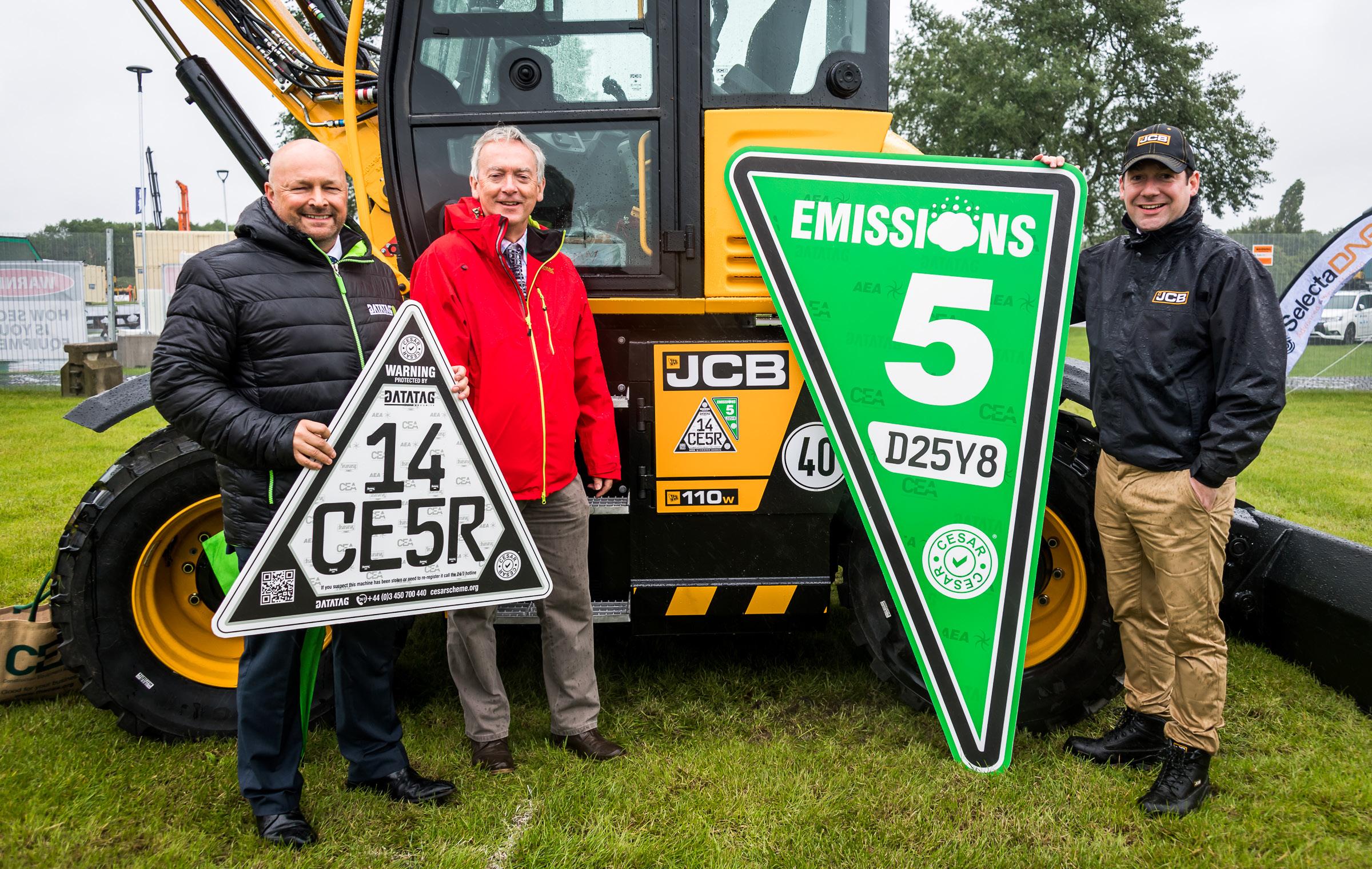
JCB roll out standard fit of CESAR Emissions Compliance Verification (ECV) A JCB Hydradig was the first machine to be equipped with the Emissions Compliance Verification (ECV) label at the CEA’s Plantworx show in June 2019. With Clean Air Zones and emissions restrictions becoming increasingly common in cities and on major construction projects across the UK, ECV allows site personnel to simply scan a QR code with a smart phone, or call a 24-hour helpline, rather than having to access engine data plates to check build details.
JCB have now confirmed that CESAR ECV will be fitted as standard on every JCB EU Stage V and electric machine for the UK market. ECV is a second CESAR label, which can easily be scanned to verify a machine’s emissions compliance and is positioned alongside the existing CESAR triangle. UK projects already trialling the scheme have found that less time is being lost on delivery to site and there are fewer air quality inspections required for equipment in operation. Electric machinery, like JCB’s innovative 19C-1E mini excavator, will be equipped with a white triangular ECV label, while EU Stage V diesel-powered equipment will use a green ECV sticker.
JCB UK and Ireland sales director Steve Smith said: “JCB is leading the way in clean engine and electric drive technologies, reducing harmful emissions to improve air quality. Now we are making identification easier for customers working in sensitive, urban environments and in enclosed spaces. We are delighted to be the first to embrace ECV marking as standard on all of our EU Stage V and electric equipment in the UK, as we did with the original CESAR scheme in 2006.”
The CEA’s Rob Oliver welcomed the continued commitment of JCB to the CESAR scheme, “JCB’s involvement with CESAR right from the get go has been terrific. They piloted the ECV add on to ensure it was fit for purpose and have provided invaluable feedback. Particular thanks are due to Charles Stevenson at JCB who immediately saw the value of providing a practical tool for site managers and enforcement agencies on air quality issues.” Hitachi adopts new CESAR ECV initiative Hitachi Construction Machinery (UK) have also signed up to CESAR and confirmed the standard fitting of CESAR (with ECV) for every mini, medium and large excavator, wheeled loader and wheeled excavator. The ECV feature, using evident colour coded labels with a unique alpha/ numeric code is linked securely to a machine’s unique CESAR identity and ensures complete integrity of the system.
David Roberts, CEO of Hitachi Construction Machinery (UK) said, “Helping our customers to protect and optimise their Hitachi machines is an increasingly important element of our value proposition, and in conjunction with our online Global e-Service telematics system which has GPS location capability, the addition of CESAR gives our customers even more peace of mind. CESAR is not only a proven theft deterrent, it also provides an accurate and efficient proof of identity to the Police when they need to trace stolen machines, which has been an industrywide issue for years. Our customers also require a quick and easy way to identify which stage of the EU emission regulations their machines comply with, as more sites control and monitor their carbon footprint. The addition of the Emissions Compliance Verification or ECV to the CESAR programme gives our machines a visible and traceable identity in regard to which emission stage they comply with.” JCB makes CESAR ECV Standard - LtoR Kevin Howells, managing director Datatag, Rob Oliver CEO, Construction Equipment Association and Charles Stevenson general manager JCB
Stephen Creaser, director of product support at Hitachi Construction Machinery (UK) commented, “Having taken the decision to security mark all new machines with the CESAR security system, we also want to offer the same peace of mind to our existing customers. From early 2020 the CESAR security system will be available to existing customers as an aftermarket retrofit kit that can be installed at the customer’s premises or job site by a fully trained Hitachi engineer.”
Rob Oliver, chief executive of the CEA said, “The Emissions Compliance Verification (ECV) application for CESAR is the single biggest development since the scheme was launched as an anti-theft device initiative in 2007. Today there is an urgent demand for quick identification of the certified emission levels of machines and in developing ECV we have had some great input from the industry as well as HS2, the Energy Savings Trust and London boroughs. The ECV’s easy to see and scan visual label reduces the workload for construction site managers and local authorities alike.”
Andy Huddleston, Superintendent of Northumbria Police said, “As the national Police lead for Agricultural Machinery theft I am delighted that Hitachi CMUK, one of the industry’s leading companies, has chosen to security mark all their new machines sold in the UK. We know that by doing this the chance of recovering these high-value machines is higher and makes life harder for criminals. We hope that all manufacturers will adopt this approach.” Hyundai Enrols in the CESAR Club The advent of 2020 sees Hyundai Construction Equipment Europe commit to CESAR for all its range of Hyundai excavators and wheeled loaders imported into the UK and Ireland, from its South Korean factory. The fitting of CESAR is being undertaken by Hyundai’s shipping agents MK Shipping, at Tilbury Port, Essex, having undergone training by CESAR-approved specialists.
Commenting on the adoption of CESAR, Hyundai’s regional sales manager UK and Ireland, Tony Reeves said, “We are delighted to announce the adoption of the CESAR Scheme on all of our excavators and wheeled loaders distributed in the UK and Ireland, we see this as a significant benefit for our customers. Our network of UK and Irish dealers also sees the adoption of the identification scheme as the obvious step for Hyundai in the fight against machinery theft and protecting customers assets.” Reeves added, “Our customers’ investment is instantly protected from would be thieves by the CESAR antitheft ID. The Scheme is a proven Crime Prevention Product, reducing the likelihood of theft by in the region of 10-times. There’s also the added benefit of reduced insurance premiums.”
Rob Oliver, CEO of the CEA said, “It is good that another leading brand has joined the CESAR programme. It is recognised that the scheme now offers great asset management opportunities to add to its success as an anti-plant theft initiative.”
A further benefit to customers of brands fitting CESAR to their machines is that many leading insurers provide insurance premium discounts of up to 20% off for all protected and registered equipment. ■ Hitachi celebrate adoption of CESAR - LtoR: Andy Huddleston - superintendent of Northumbria Police, David Roberts - CEO of HCMUK, Kevin Howells - CEO of Datatag, Rob Oliver - chief executive of the CEA, Rachel Hamilton - business development executive of Datatag, and Phil Patterson of Northumbria Police. Jack Couch shipping agent MK Shipping, Tony Reeves Hyundai UK and Ireland sales manager, Rachel Hamilton business development executive Datatag and Rhys Hymas operations manager MK Shipping - with the first machines fitted with Datatag CESAR marking at Tilbury Port, Essex.
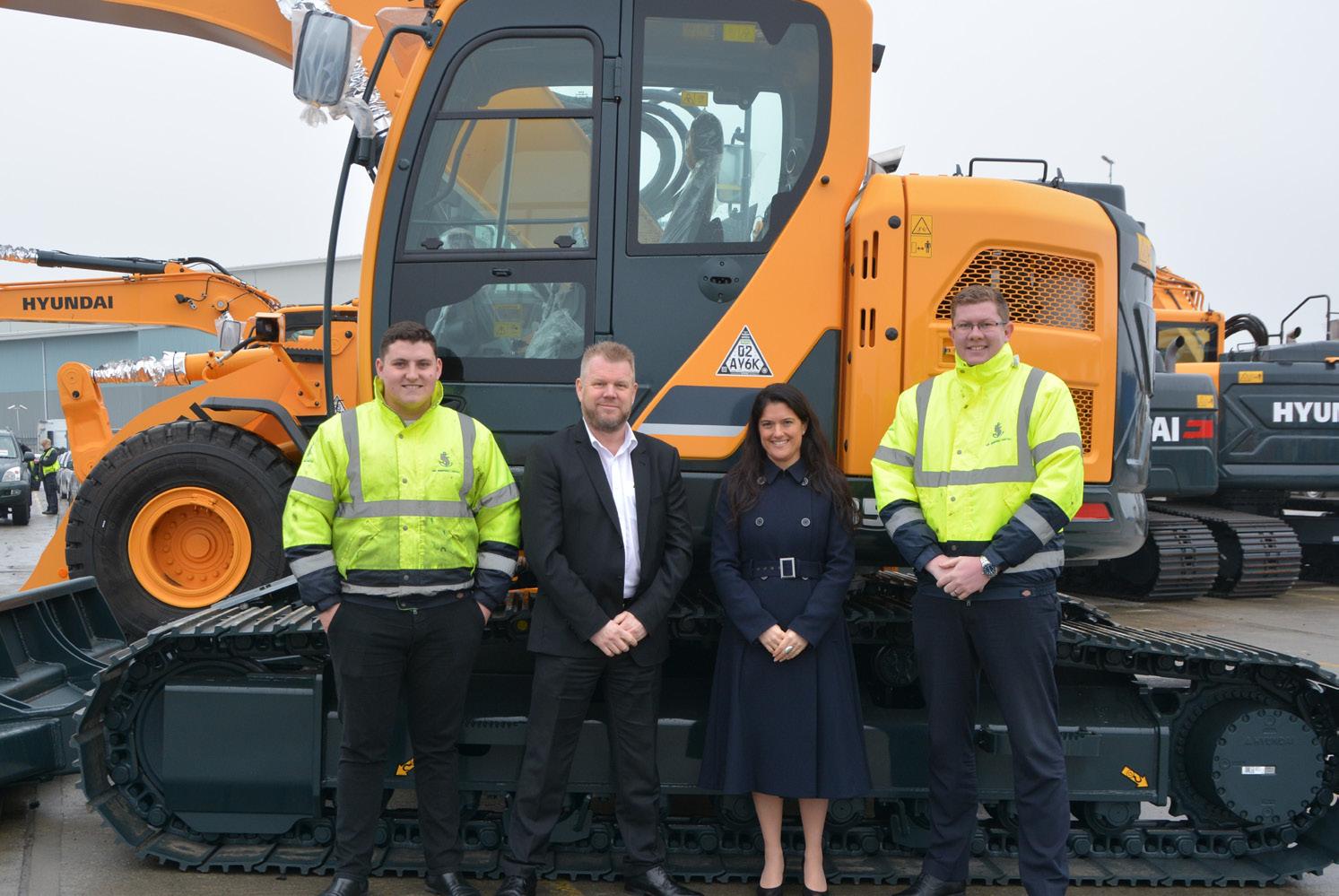
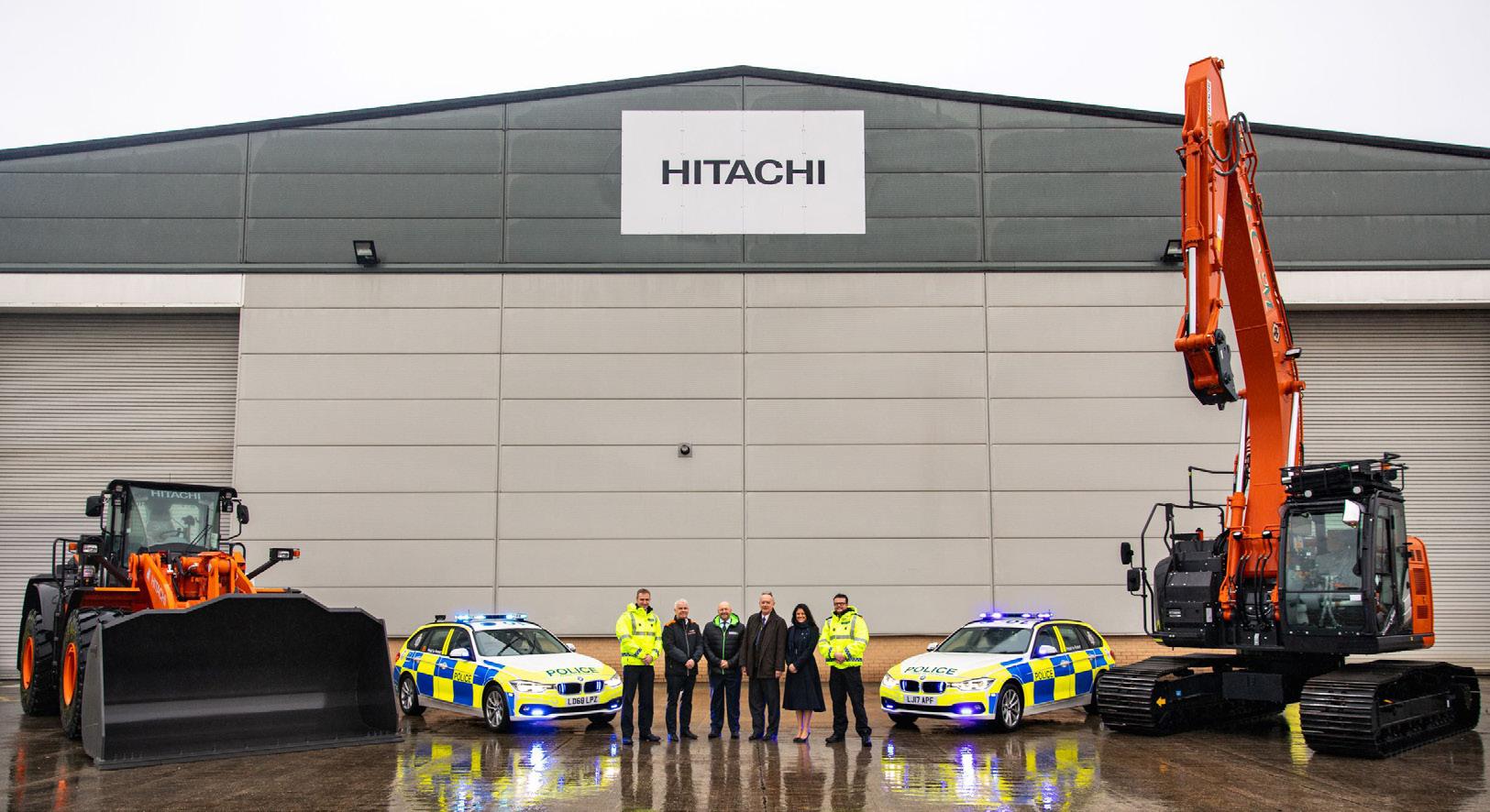
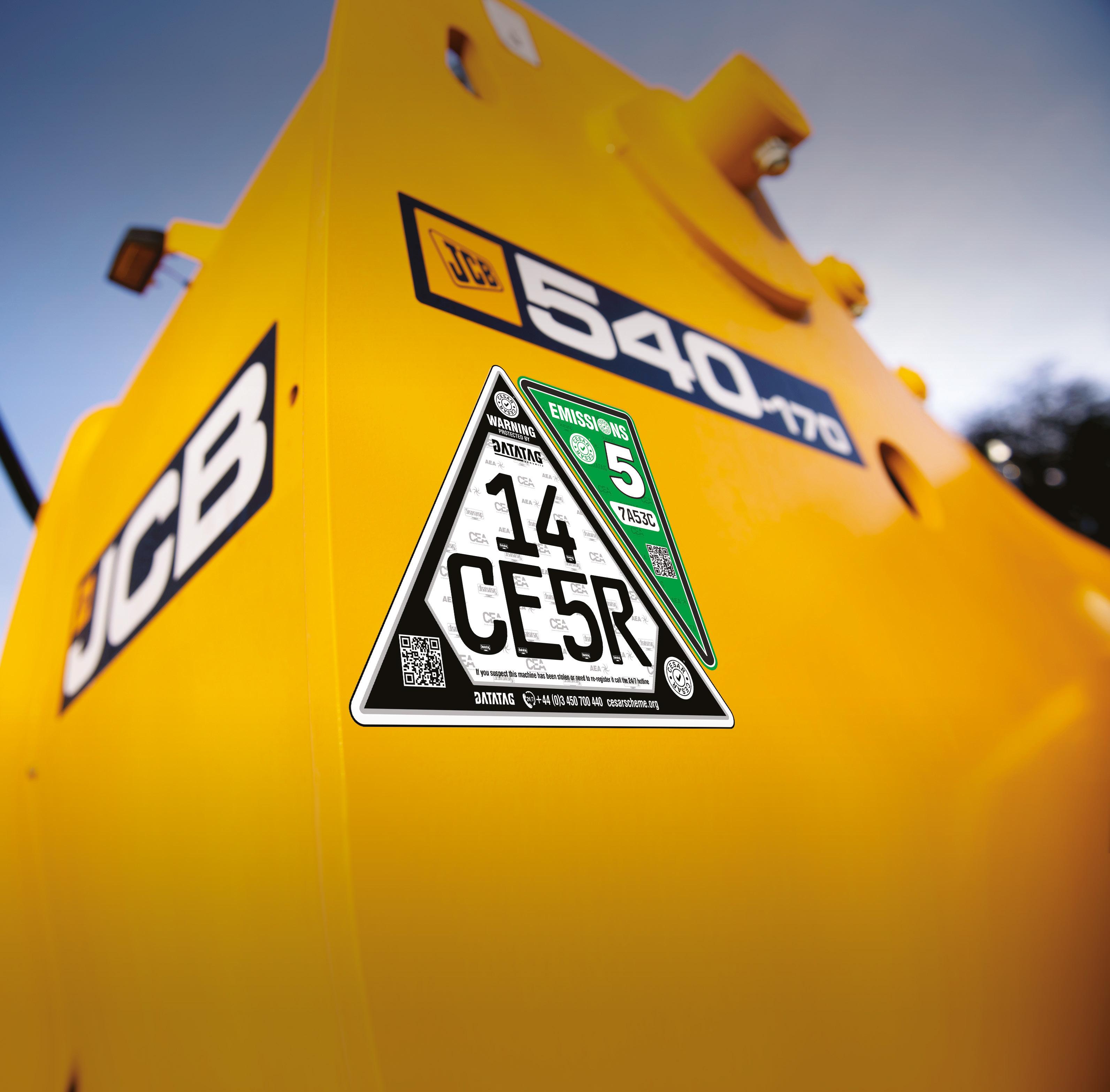
HB365LC-3 HYDRAULIC EXCAVATOR


ENGINE POWER 202 kW / 271 HP OPERATING WEIGHT 36,300 - 37,350 kg BUCKET CAPACITY max. 2.66 m³
Komatsu Hybrid - It makes a difference Reduce your carbon footprint and fuel consumption by up to 40%. Unrivalled on the market, thousands of Komatsu Hybrid excavators work around the world today and have logged millions of fuel-saving hours for our customers. With Komatsu Hybrid equipment, you enjoy a new experience, and the most reliable and advanced technology in the industry today.










